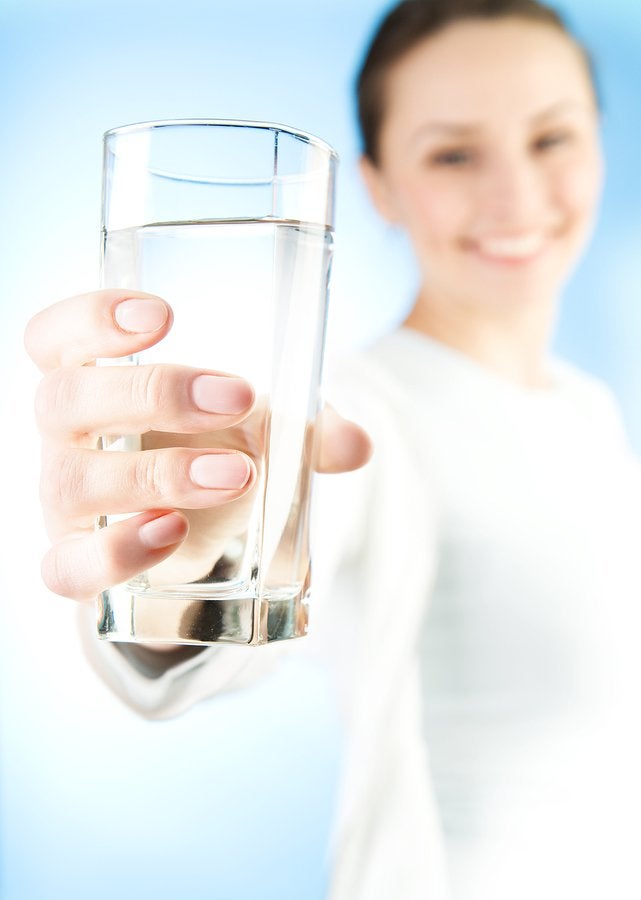Reducing Your Risk of Kidney Stones

Kidney stones are comprised of hardened deposits of minerals and acid salts. Although the symptoms of kidney stones can vary in intensity, many women have said the pain is worse than childbirth. Not all kidney stones require surgical intervention, but it’s a good idea to consult a urology specialist for expert treatment. If you’ve been diagnosed with kidney stones once, you should know that you’re at risk of getting them again. The following tips can help you prevent recurrent stones.
Increase your water intake.
Drinking plenty of water is essential for your health in general and kidney stone prevention in particular. During hot weather and while exercising, increase your water intake even more. As a general rule of thumb, you’re drinking enough water if your urine is very lightly colored or clear.
Increase your consumption of plant-based proteins.
It’s thought that eating lots of animal-based proteins may increase the risk of developing kidney stones. Your urologist may ask that you limit beef, chicken, and pork. Organ meat is thought to be especially impactful regarding kidney stone development. Consider limiting your intake of eggs, poultry, seafood, and dairy products.
Avoid calcium supplements.
Although calcium can be found in kidney stones, the consumption of food sources of calcium doesn’t appear to influence the risk. However, your urologist may suggest that you avoid calcium supplements.
Reduce your sodium intake.
Managing your sodium intake is particularly important if your kidney stones were calcium oxalate or calcium phosphate stones. There are lots of sneaky sources of sodium in the average American diet. High amounts of sodium are found in deli meats and cheeses, bread, pizza, soup, canned foods, and even frozen vegetables that include sauces. An effective way to reduce your sodium intake is to avoid processed foods and takeout, and to cook with fresh ingredients at home instead.
If you do need kidney stone treatment within Tennessee, you can count on Urology Associates, P.C. Our urologists offer cutting-edge treatments and sound medical guidance you can trust. Call our office at (888) 329-7700 to request a prompt appointment.
Recent Posts
categories
- Uncategorized
- Bladder Cancer
- Women's Sexual Health
- MonaLisa Touch
- Urology
- Urologist
- Erectile Dysfunction
- Kidney Cancer
- Incontinence
- Prostate
- MonaLisa Touch Laser Treatment
- Kidney Stones
- Urinary Tract Infections
- Event
- Sexual Dysfunction
- Testicular Cancer
- Prostate Cancer
- Urology Surgery Center
- urinary incontinence
- vaginismus
- noncoital pain disorder
- Hypoactive Sexual Desire Disorder
- Infographic
- provenge
- Xofigo
- robotic surgery
- hormone replacement
- diabetes
- renal cell carcinoma
- pelvic pain
- hematuria
- sexual health
- chronic testicular pain
- premature ejaculation
- Men's Health Clinic
- Dr. Melvin Seard
- Interstitial Cystitis
- vasectomy
- overactive bladder
- vaginal atrophy
- nocturia
- bladder infections
- urethral strictures
- Acute Epididymitis
- low sex drive
- circumcision
- pelvic floor dysfunction
- Peyronie's Disease
- prostatitis
- female sexual dysfunction
- varicocele
- difficult urination
- low libido
- PSA levels
- male fertility
- penile prosthesis
- prostatic intraepithelial neoplasia
- male infertility
- estrogen levels
- nurse navigator
- stress urinary incontinence
- vaginal yeast infection
- elevated psa
- painful sex
- adult circumcision
- epididymitis
- OAB
- kidney infection
- penile cancer
- pelvic organ prolapse
- Vasectomy Reversal
- bone health
- cystectomies
- clinical trials
- bloody urine
- Advanced Therapeutic Center
- WISH MedSpa
- neurogenic bladder
- WISH Team
- prostate biopsies
- BPH
- fecal incontinence
- lithotripsy
- osteoporosis
- kidney cysts
